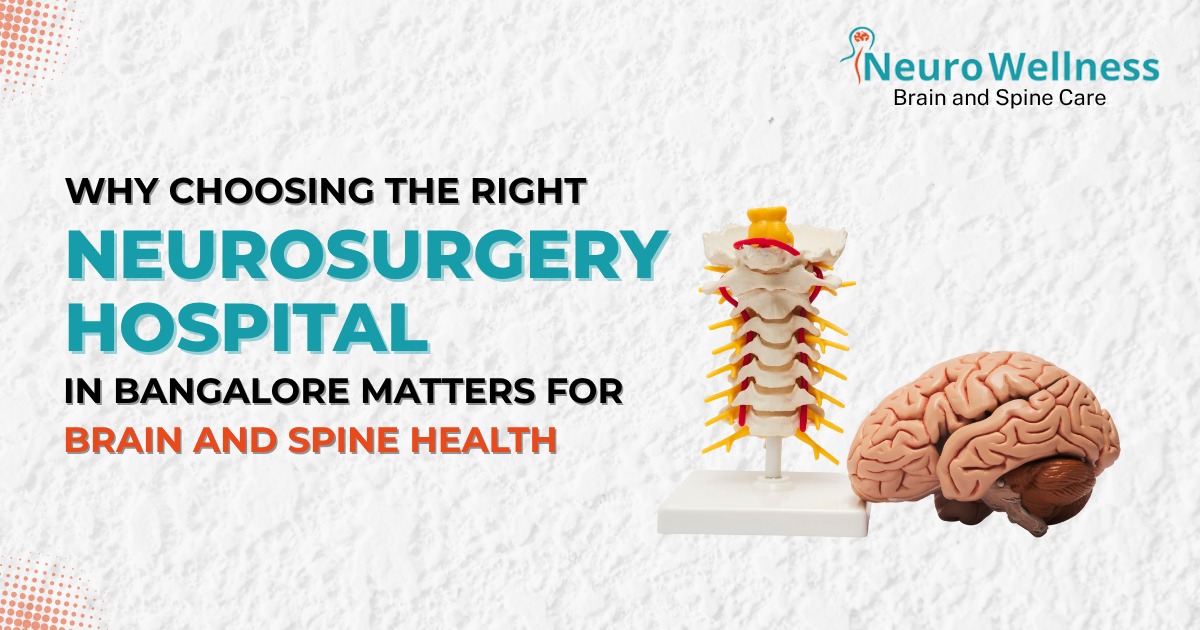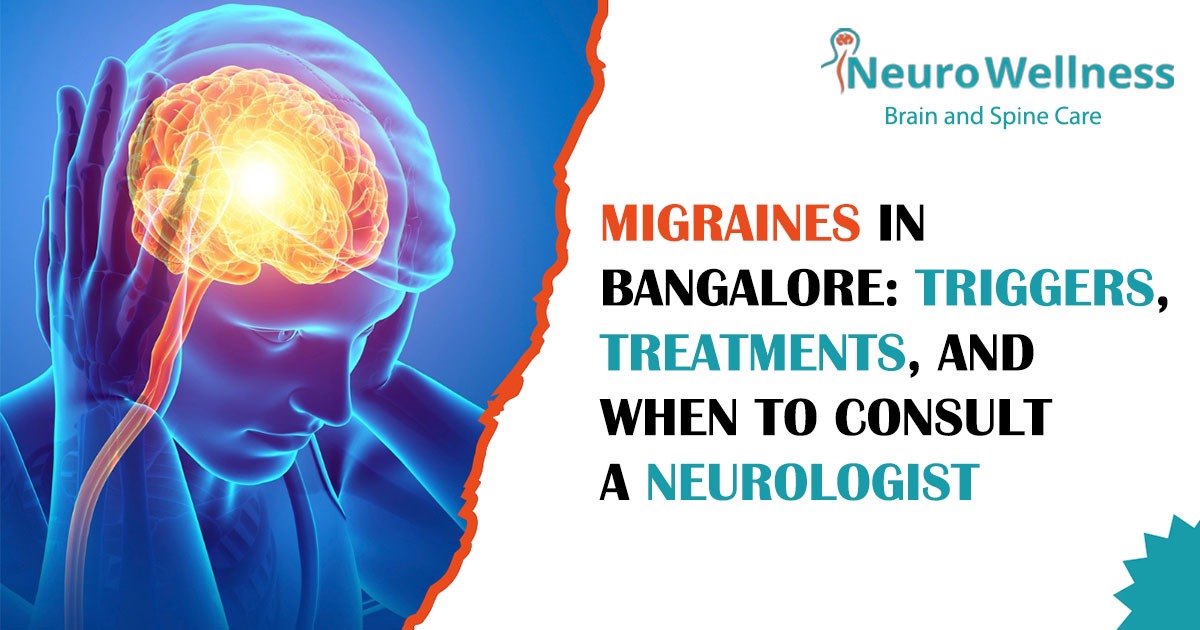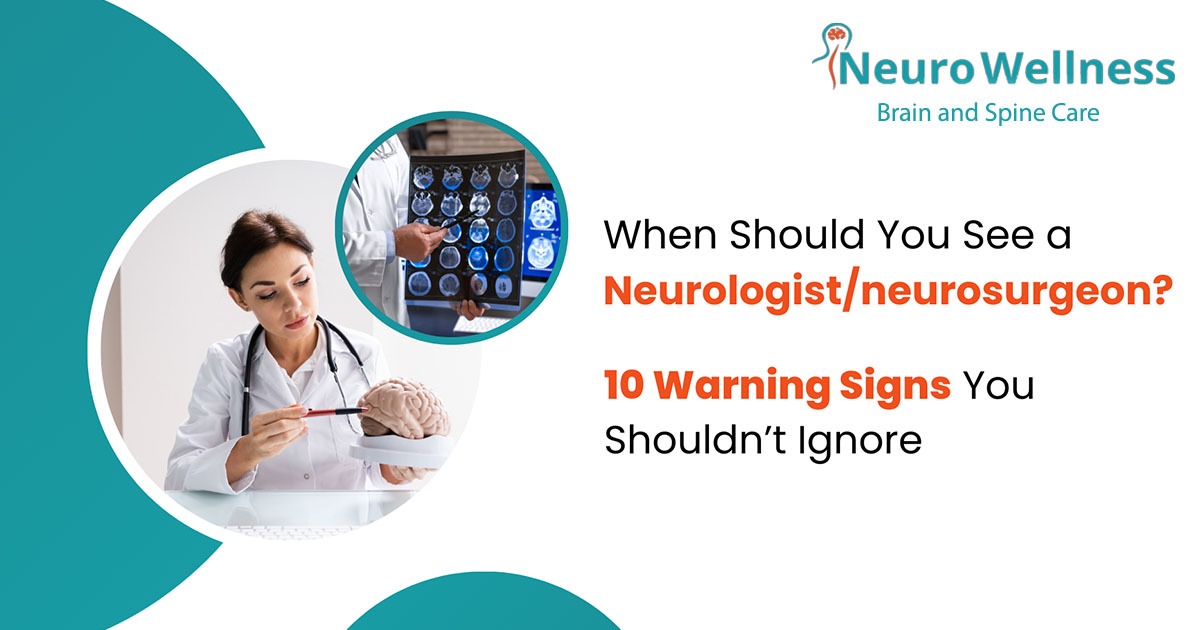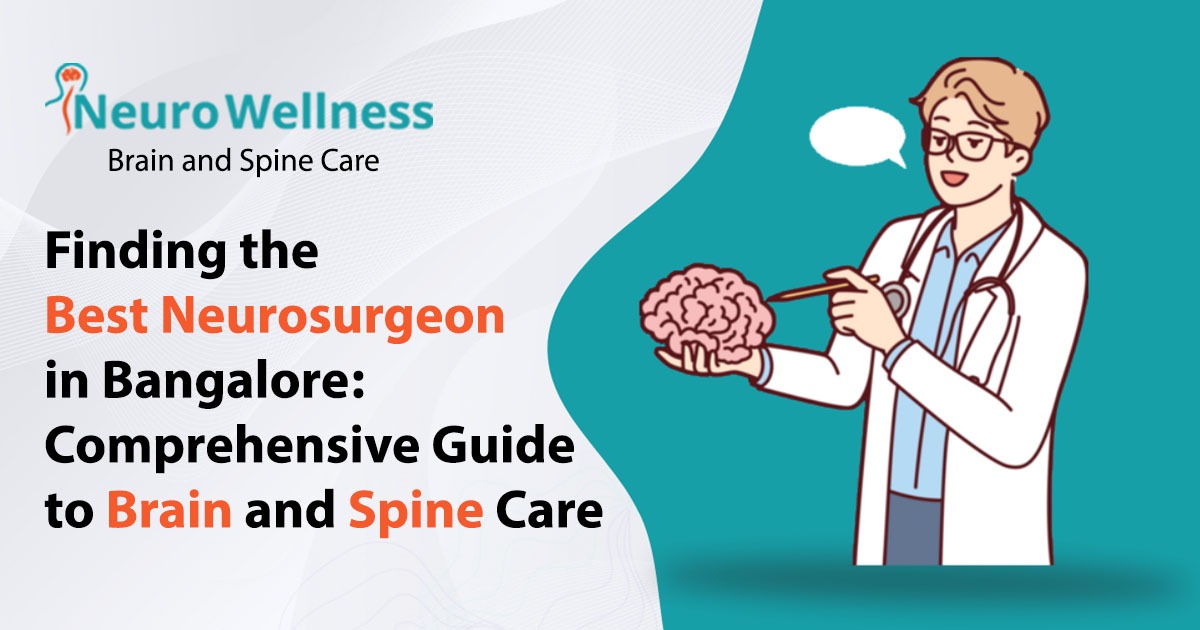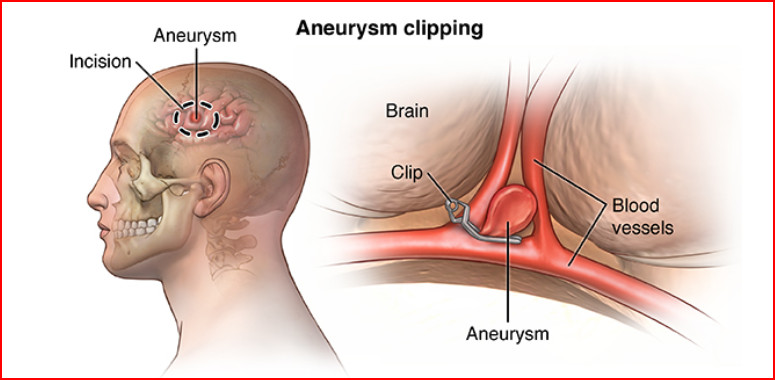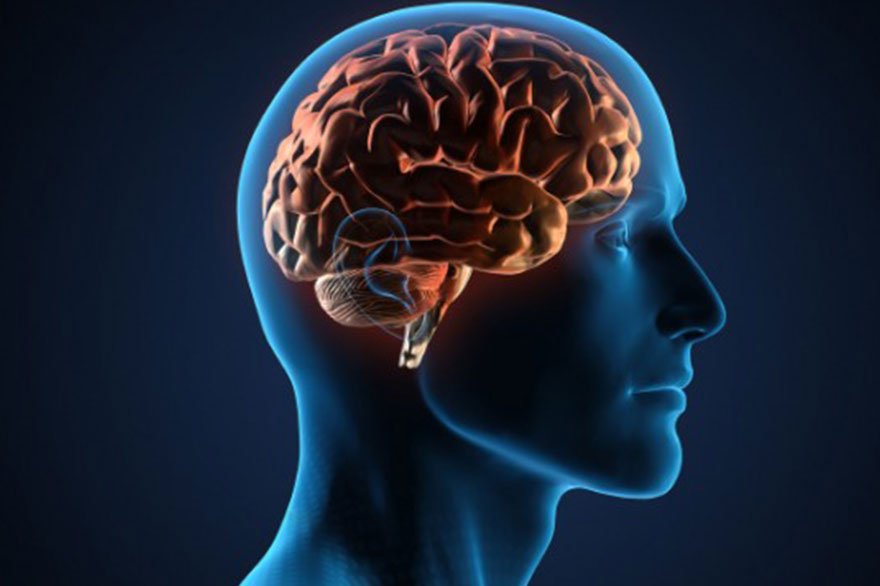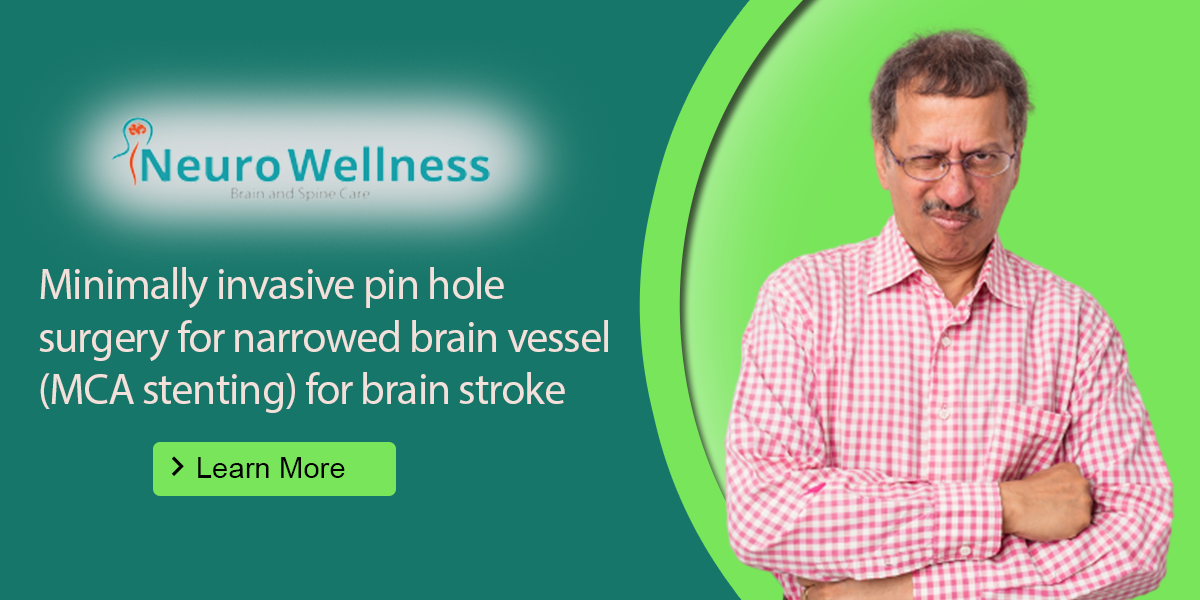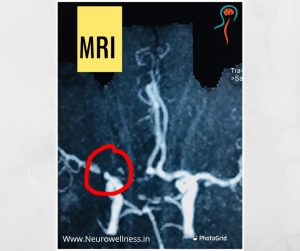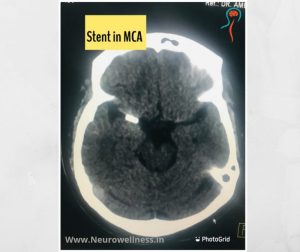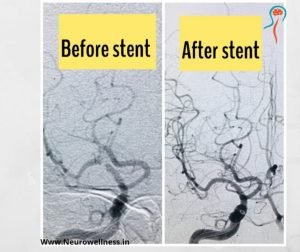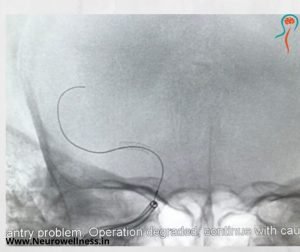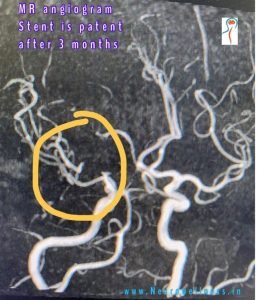Meningitis is an inflammation of the protective membranes surrounding the brain and spinal cord. Despite advances in medicine, it continues to threaten lives — especially when diagnosis or treatment is delayed.
At Neurowellness Bangalore, we frequently manage complex meningitis cases where timely action makes all the difference between full recovery and lifelong disability.
Experiencing prolonged fever, headache, or neck stiffness?
Book a neurological consultation with Dr. Ganesh Veerabhadraiah to ensure early diagnosis and expert care.
Real-World Cases That Redefine Preparedness
Case 1 – The Missed CSF Leak
A 26-year-old man arrived ten days after a skull-base fracture with persistent watery nasal discharge. Cultures confirmed Klebsiella pneumoniae meningitis. Despite intensive ICU care and multiple external ventricular drains, he survived with severe ataxia and memory loss. Early CSF-leak repair could have prevented this tragedy.
Case 2 – When Resistance Wins
A 28-year-old patient developed multidrug-resistant Acinetobacter meningitis following pituitary surgery. Even bilateral drains and intraventricular antibiotics failed to control infection. Months of rehabilitation were needed. This underscores how antimicrobial resistance can neutralize even advanced ICUs.
Case 3 – The 75-Year-Old Survivor
A diabetic woman presented with altered sensorium and high fever. Early intubation, strict sugar control, and 21 days of guided antibiotics led to complete recovery. Her case proves that protocols, teamwork, and vigilance save lives.

Dr. Ganesh Veerabhadraiah
Consultant – Neurosurgeon, Neurointerventional Surgery, Spine Surgeon (Neuro)
23+ Years Experience Overall (17+ years as Neuro Specialist)
Available for Consultation: Jayanagar 9th Block & Kauvery Hospital, Electronic City
Key Lessons
ㆍTime is everything. Early recognition of CSF leaks or meningitis symptoms changes outcomes.
ㆍInfrastructure saves lives. Dedicated neurosurgical OTs, sterile instruments, one-to-one ICU nursing — not luxuries, essentials.
ㆍInfection control is non-negotiable. Resistant bugs demand antibiotic stewardship and strict hygiene.
ㆍTeamwork decides survival. Neurosurgeons, intensivists, and infection specialists must act as one.
In 2019, meningitis accounted for over 100,000 deaths globally. In just four years, in 2023, that number rose to 260,000
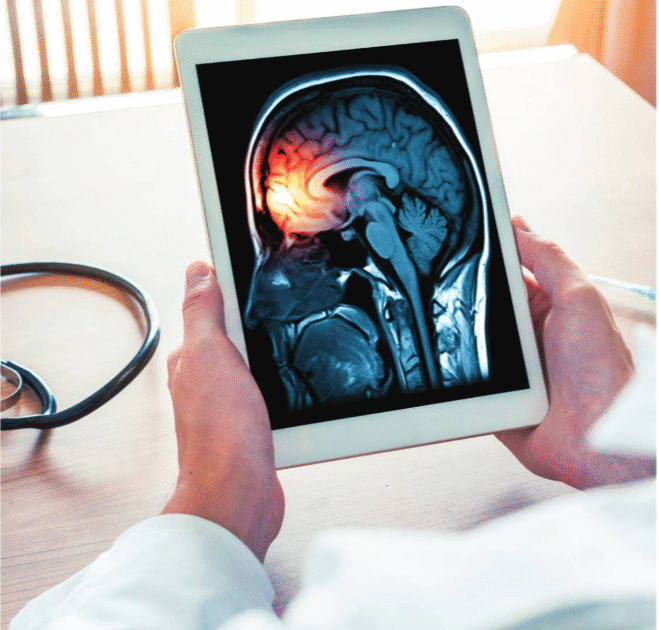
Global & Indian Burden
Year | Global Deaths | India Cases | Key Cause |
2019 | ≈ 100 000 | 562 000 | Bacterial |
2023 | ≈ 280 000 | 34 700 deaths | Delayed diagnosis |
In India, meningitis remains a major neurological threat, causing significant disability-adjusted life years (DALYs).
At Neurowellness India, advanced neurosurgical and infection-control protocols have drastically improved recovery outcomes.
Causes of Meningitis
Type | Source | Examples |
Bacterial | Contagious spread | Streptococcus pneumoniae, Neisseria meningitidis |
Viral | Post-flu infection | Enteroviruses, Influenza |
Fungal | Environmental | Candida, Cryptococcus |
Post-surgical | After head injury or neurosurgery | CSF leaks |
Meningitis may also arise from non-infectious causes such as autoimmune diseases or cancer therapy.
Symptoms & Diagnosis
Common early signs resemble the flu — fever, headache, neck stiffness, light sensitivity, vomiting, and confusion.
Doctors confirm meningitis using:
ㆍPhysical exam and neurological tests
ㆍLumbar puncture (CSF analysis)
ㆍMRI / CT brain imaging
ㆍBlood tests & PCR panels
Speed is crucial. In smaller hospitals, symptoms can be mistaken for sepsis or encephalitis, delaying life-saving care.
If you or someone you know shows these symptoms, contact Neurowellness Bangalore for immediate evaluation by our neurospecialists.
Management & Treatment
Prompt treatment is the key.
ㆍBacterial: High-spectrum antibiotics
ㆍFungal: Antifungals
ㆍViral: Antivirals
ㆍSupportive care: ICU monitoring, lumbar drainage, physiotherapy
Integrated care — neurology, neurosurgery, ICU, and infectious-disease teams — offers the best outcomes.
At Neurowellness Bangalore, such multidisciplinary collaboration has helped many patients recover completely.
For expert-guided meningitis treatment plans, reach out to Dr. Ganesh Veerabhadraiah and our team at Neurowellness India.
Bacterial & Viral Meningitis
Bacterial meningitis spreads rapidly through the bloodstream or nearby infections (sinusitis, otitis media).
Viral meningitis is often milder and self-limiting.
Fungal meningitis can be fatal without antifungal therapy.
Common pathogens include Streptococcus pneumoniae, Haemophilus influenzae, and Listeria monocytogenes.
Groups Most at Risk
ㆍNewborns and infants (weak immunity)
ㆍElderly and immunocompromised patients
ㆍPost-surgical and ICU patients
ㆍHealthcare workers with occupational exposure
ㆍResidents of crowded facilities such as hostels or camps
Complications
Untreated meningitis can lead to seizures, hearing loss, vision problems, memory impairment, learning disability, brain damage, kidney failure, or death.
Prevention
ㆍHand Hygiene: Wash hands frequently with soap and water.
ㆍEducate Children: Promote hygiene before eating or after pets.
ㆍAvoid Sharing: No common utensils, lip balms, or straws.
ㆍImmunity Boost: Adequate sleep, exercise, and balanced diet with pasteurized foods.
ㆍ Vaccination: Pneumococcal and meningococcal vaccines have significantly reduced cases globally.
Neurowellness actively participates in community awareness and vaccination drives for neuro-infection prevention.
Advancements & Innovations
ㆍTele-neurology & Digital Triage: Help Tier-2/3 hospitals detect cases faster.
ㆍAI-Based Monitoring: Improves ICU infection control.
ㆍMonoclonal Antibodies & Precision Therapies: Emerging for resistant strains.
ㆍGenomic Sequencing & Portable Diagnostics: Future tools for rapid on-site detection.
ㆍMission Indradhanush (India): Expanding national vaccine coverage.
Diagnostic Challenges in Smaller Hospitals
Many smaller Indian centers lack advanced PCR panels and AI-driven diagnostics, leading to delays and higher mortality.
Expanding affordable rapid testing beyond metro cities is crucial for equitable care.
Road Ahead for Hospitals
Meningitis care is resource-intensive (₹3 – 5 lakhs per case). Preparedness is the solution.
Hospitals must adopt:
ㆍStrict infection-control protocols to limit outbreaks
ㆍInterdisciplinary care models (Pharmacy + Neurology + ICU)
ㆍStaff immunization & surveillance systems
ㆍ Partnerships with pharma, MedTech & digital health firms for diagnostics
ㆍAffordable AI tools for Tier-2 and Tier-3 hospitals
Neurowellness Bangalore serves as a model for infection-ready neuro facilities with trained ICU teams and cutting-edge diagnostic support.
Looking Forward
The future lies in genomics, telemedicine, and public-private vaccine initiatives that make care accessible nationwide.
Hospitals that embrace these technologies early will save more lives and lead India’s fight against infectious disease.
Conclusion
Meningitis is not just a medical condition — it’s a test of a hospital’s discipline and culture of safety. I’ve seen it steal young lives, leave others disabled, and also allow fragile patients to walk home smiling.
Preparedness makes the difference.
As doctors and healthcare leaders, we must commit to early diagnosis, infection prevention, and teamwork. When we do, we don’t just save patients — we strengthen our hospitals and the trust our communities place in us.
If you need guidance or expert evaluation for meningitis care, connect with Dr. Ganesh Veerabhadraiah and the specialist team at Neurowellness Bangalore.
FAQs
1. What are the early warning signs of meningitis?
Fever, headache, stiff neck, nausea, vomiting, and sensitivity to light are common early symptoms. Seek immediate medical attention if these symptoms persist or worsen.
2. How is meningitis diagnosed by neurologists?
Doctors perform physical and neurological exams, lumbar puncture (CSF analysis), brain imaging (MRI/CT), and blood or PCR tests to confirm meningitis accurately.
3. Who is at higher risk of developing meningitis?
Infants, elderly individuals, people with weak immunity, post-surgical patients, and those in crowded places are more vulnerable to meningitis infections.
4. Can meningitis be treated completely?
Yes. With early diagnosis and appropriate antibiotics or antivirals, most patients recover fully under expert neurological and ICU care.
5. How can meningitis be prevented?
Regular handwashing, avoiding shared utensils, maintaining strong immunity, and timely vaccinations like pneumococcal and meningococcal vaccines help prevent meningitis.

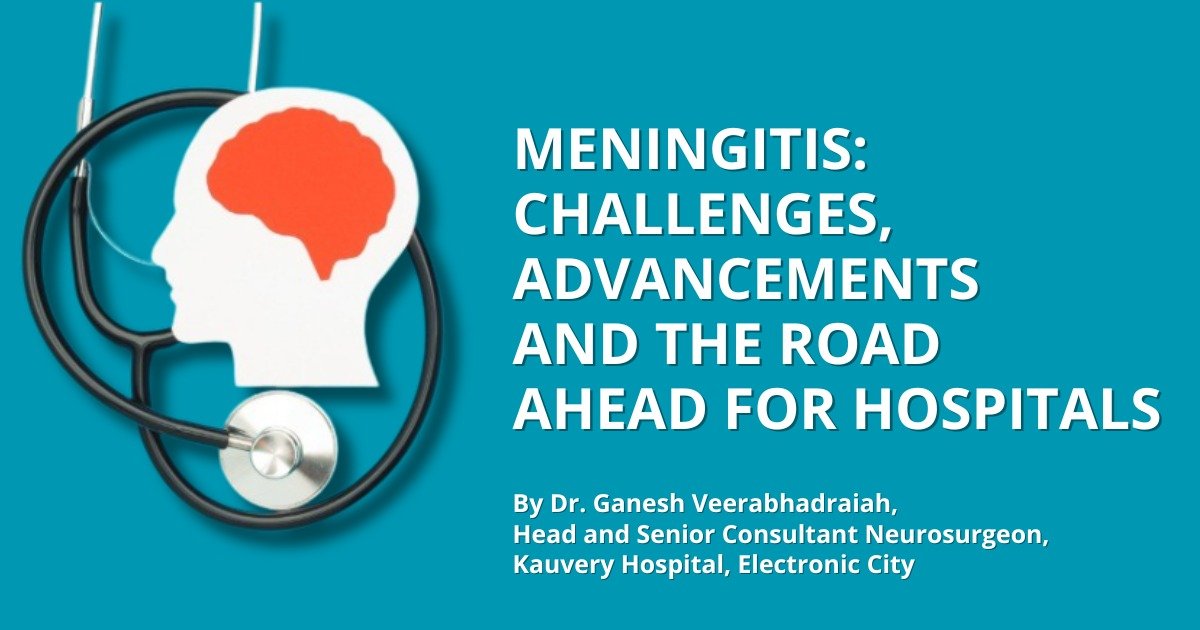
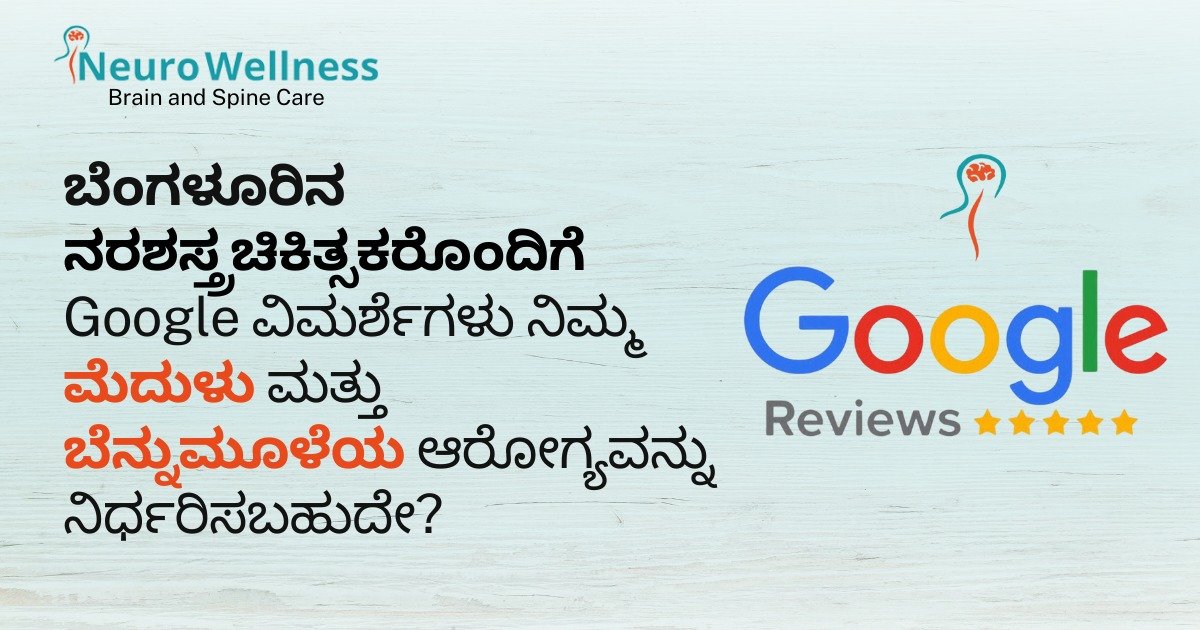
 ಸುರಕ್ಷಿತ ಆಯ್ಕೆ ಮಾಡುವ ದಾರಿ:
ಸುರಕ್ಷಿತ ಆಯ್ಕೆ ಮಾಡುವ ದಾರಿ: